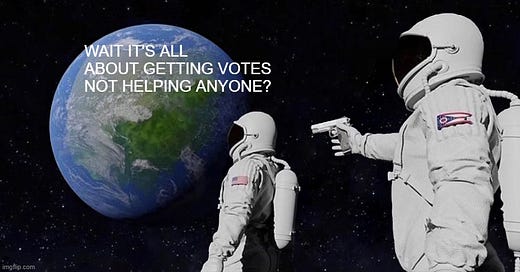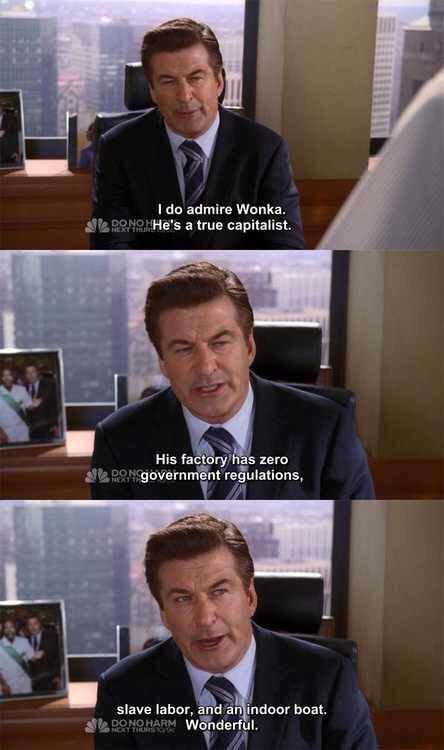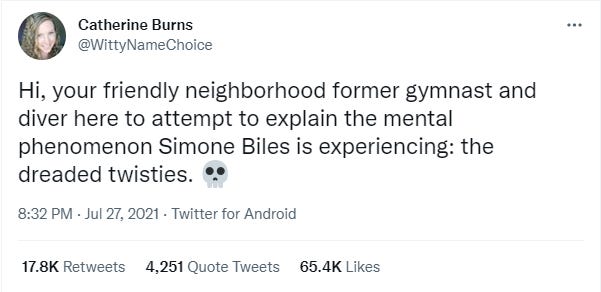Last week, Amazon founder Jeff Bezos blasted into space on his Blue Origin rocket, just days after fellow billionaire Richard Branson reached the heavens himself.
To put that into some historical context, Branson was born in 1950. That’s just two years after Orville Wright died in 1948 - y’know, the guy who, along with his brother Wilbur, invented flight. For his part, Bezos showed up in 1964, just three years after cosmonaut Yuri Gagarin became the first man into space in 1961.
In our opinion, private manned space flight is undeniably cool (if we’re being honest, maybe a little overdue, but cool nonetheless). How did our fellow citizens react?
In one of two ways:
Lots of penis jokes. Like, so many penis jokes. Sophomoric, but we’re here for it.
Or, like this:
So, dick memes or hot-take think pieces. Sounds about right.
We know which side the politicians are on. US Senator Elizabeth Warren wasted no time and took to Twitter to launch this missive:
Now the idea of raising taxes on the wealthy is not a new idea. Regardless of which party you align with, most polls indicate raising taxes on the ultra-wealthy is a popular idea. While we enjoy a good debate, let’s just applaud Senator Warren for capitalizing on the moment to go viral.
Let’s break down some of the claims made in her tweet, through the lens that humans are notoriously bad at contextualizing large numbers.
Bezos has an estimated $180 billion net worth, which does not mean he has $180 billion in cash sitting around. And that’s probably a good thing because:
$1 million weighs 110 lbs if you were to take it out in $20 bills like a normal ATM.
This means $180 Billion in $20’s weighs almost 20 million pounds, or more than 5x the weight of a fully-loaded Space Shuttle.
And since we can’t comprehend how much that weighs, it's more than 3000 pickup trucks or 10,000 average American men.
So, Jeff Bezos and his fellow billionaires have so much money that it literally boggles the human mind.
Half the country is ~165 million people. Bezos could give each of them just over $1,000 dollars. Pretty cool, but doesn’t seem life-changing, considering we received more than that in Covid relief.
So, let’s narrow it down: 43 million people have student debt. Bezos could give each of them a little over $4k. Getting better, but again, the average student loan debt is near $30k so don’t think this quite solves anything. It would pay for one hell of a bar tab.
And while it's trendy to “Eat the Rich” these days, SNAP (commonly referred to as food stamps) costs the government over $80 billion per year. Bezos could only foot the bill for a couple of years. Meanwhile, Social Security clocks in near a cool trillion dollars per year, so while Bezos can ride a dildo to space, he can’t satisfy our country’s obligations any more than he can satisfy his wife.
These numbers illustrate that some people in America have unfathomable amounts of wealth and it would be nice if they helped out the rest of us (to his credit, Bezos has donated billions). It also highlights that handing over the money to politicians doesn’t magically solve all the problems.
Call us crazy, but we think starting a company that changes the entire retail landscape should be rewarded.
But unchecked ambitions can often lead to wealth inequality, poor working conditions, and many other societal problems. See Amazon workers peeing in bottles.
We’re taking the middle ground: Amazon and Jeff Bezos have skirted taxes while becoming one of the largest companies in the world. That being said, they also pay above-average wages, provide benefits, and most importantly provide you a valuable service!
Cancel Amazon Prime, we dare you.
Meanwhile, the government wastes more money per year than Jeff Bezos is worth.
What’s the Upside?
Honestly, we wrote this article for clickbait, and we know it works because every article about taxing billionaires goes viral.
But we are here to say avoid the extremes. Billionaires are afforded too much leeway in this country, true, but they also create amazing companies and generate tax revenue that your favorite politician (on either side of the aisle) will inevitably waste.
So sit back, and enjoy watching a bunch of nerds have a space race.
For Your Weekend:
This is where we’ll post a round-up of essays, podcasts, and streaming shows to check out over your weekend. We cast a wide net so you don’t have to.
Read:
The Return-to-Office Existential Crisis by Ed Zitron (The Atlantic)
Remote work lays bare many brutal inefficiencies and problems that executives don’t want to deal with because they reflect poorly on leaders and those they’ve hired. Remote work empowers those who produce and disempowers those who have succeeded by being excellent diplomats and poor workers, along with those who have succeeded by always finding someone to blame for their failures. It removes the ability to seem productive (by sitting at your desk looking stressed or always being on the phone), and also, crucially, may reveal how many bosses and managers simply don’t contribute to the bottom line.
Facebook’s Broken Vows by Jill Lepore (The New Yorker)
Facebook has a save-the-world mission statement—“to give people the power to build community and bring the world closer together”—that sounds like a better fit for a church, and not some little wood-steepled, white-clapboarded, side-of-the-road number but a castle-in-a-parking-lot megachurch, a big-as-a-city-block cathedral, or, honestly, the Vatican. Mark Zuckerberg, Facebook’s C.E.O., announced this mission the summer after the 2016 U.S. Presidential election, replacing the company’s earlier and no less lofty purpose: “to give people the power to share and make the world more open and connected.” Both versions, like most mission statements, are baloney.
Aaron Rodgers Had a Few Things to Get Off His Chest by Nora Princiotti (The Ringer)
“If you’re going to cut a guy who, based on a meritocracy, was our second-best wide receiver in training camp last year for the majority of camp, maybe run it by me,” Rodgers said.
That, ladies and gentlemen, is the tea.
Simone Biles and the Dreaded Twisties
For context on what Simon Biles is going through, read the whole thread:
Listen:
Positive University Podcast: Coach P.J. Fleck
Coach Fleck is the Head Football Coach at the University of Minnesota and recently released a book with Jon Gordon titled Row the Boat: A Never-Give-Up Approach to Lead with Enthusiasm and Optimism and Improve Your Team and Culture. If you don’t know him, he is a ball of energy and talks about the metaphor of rowing the boat, how he creates a culture of accountability through positivity, and how he leads, instills, and drives the culture of his program.















